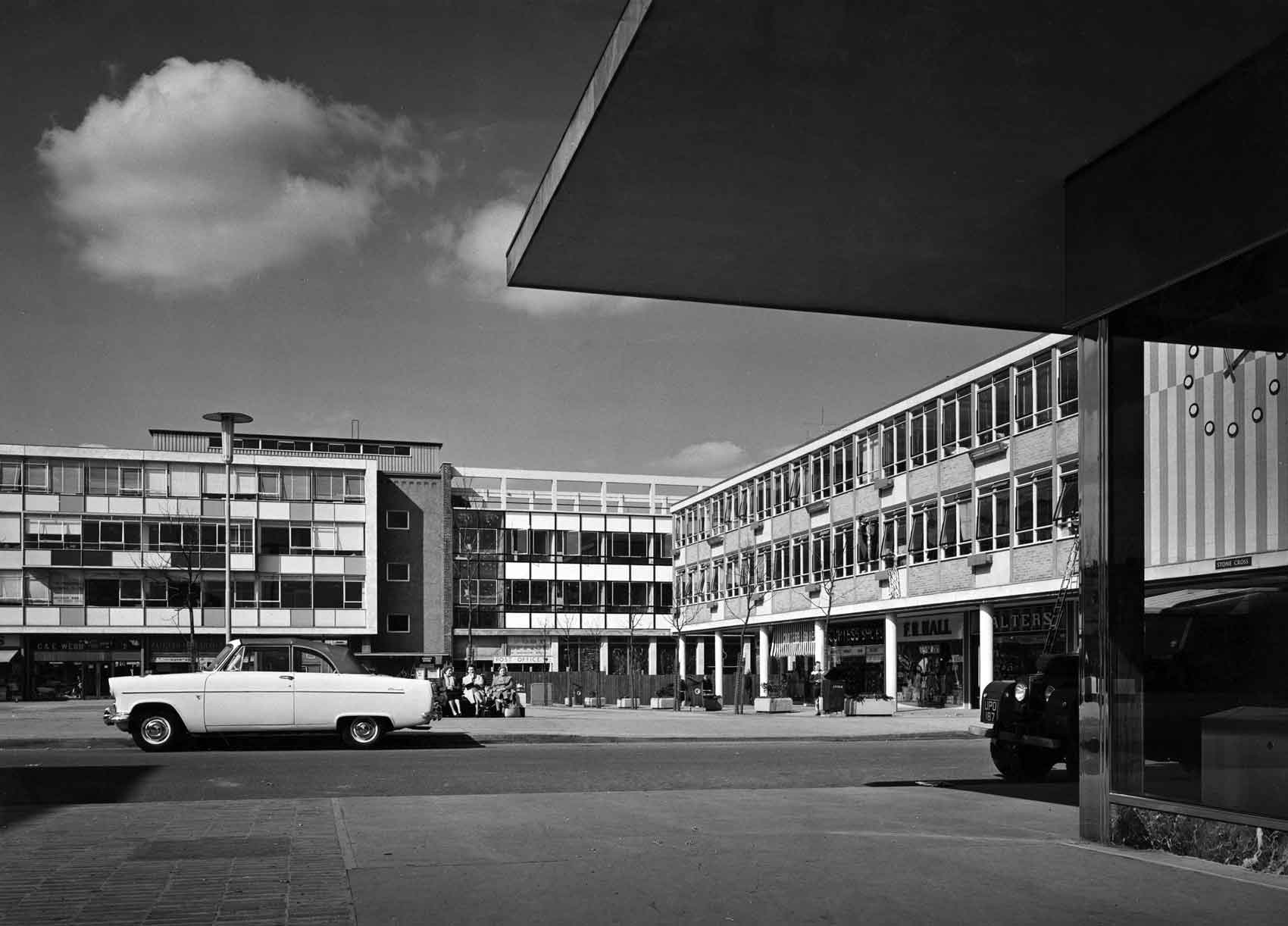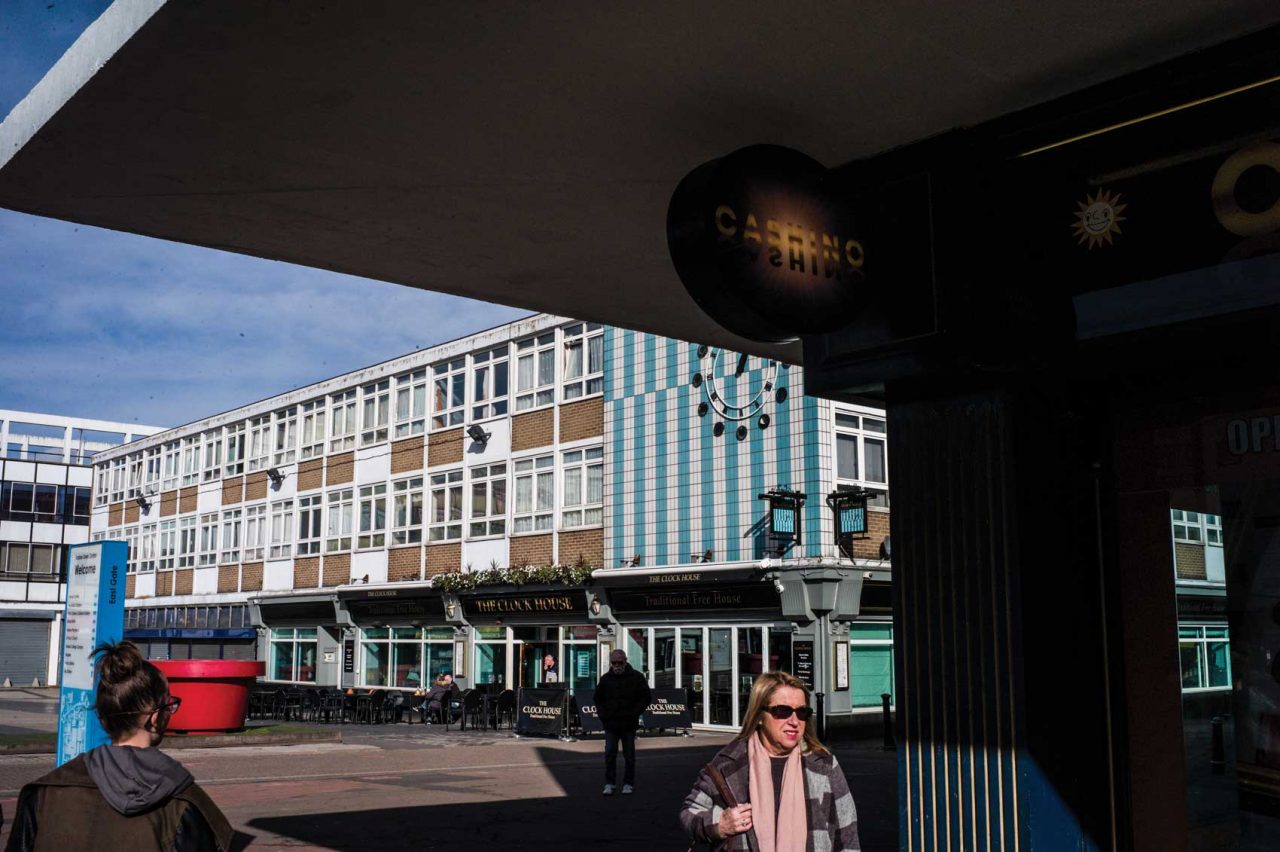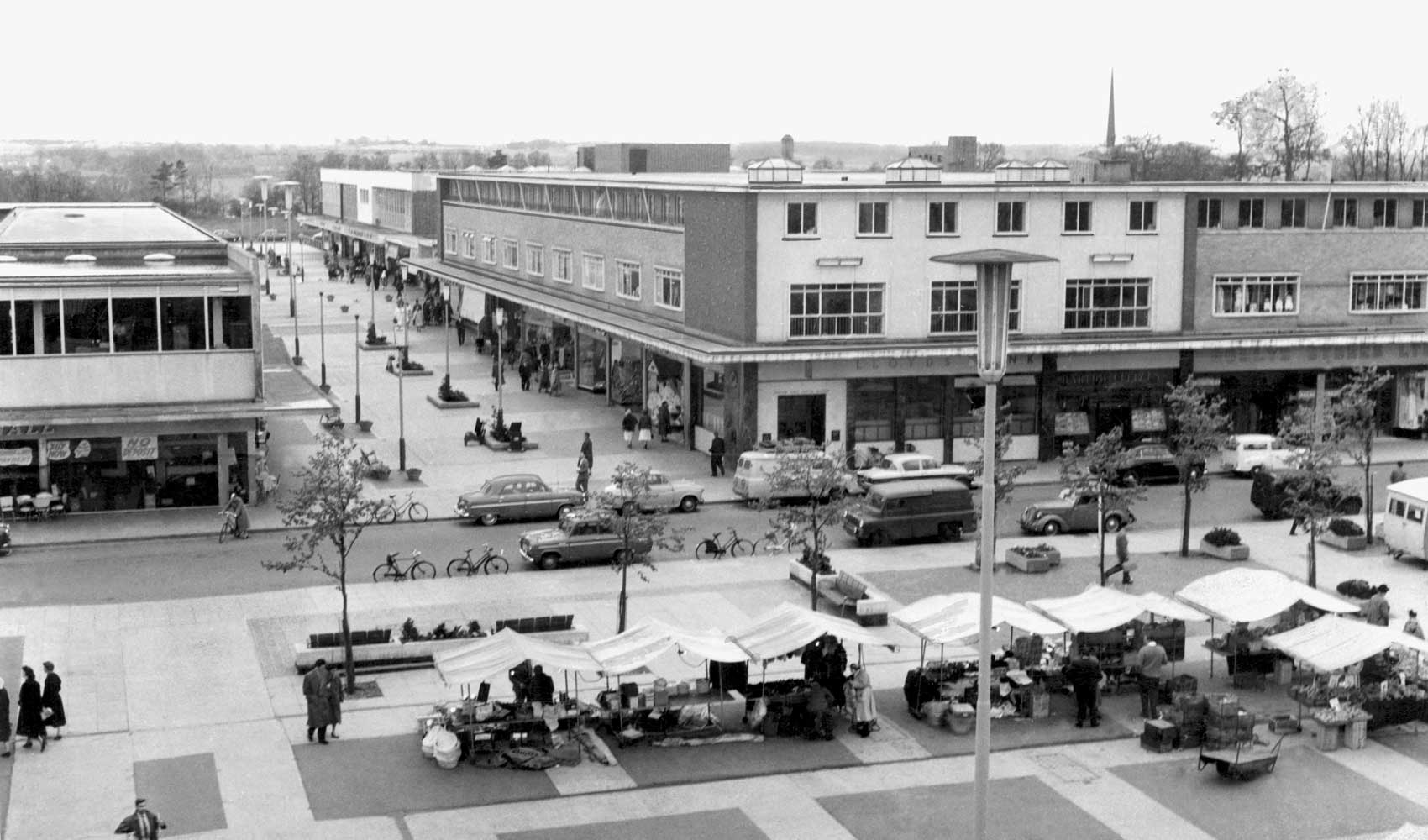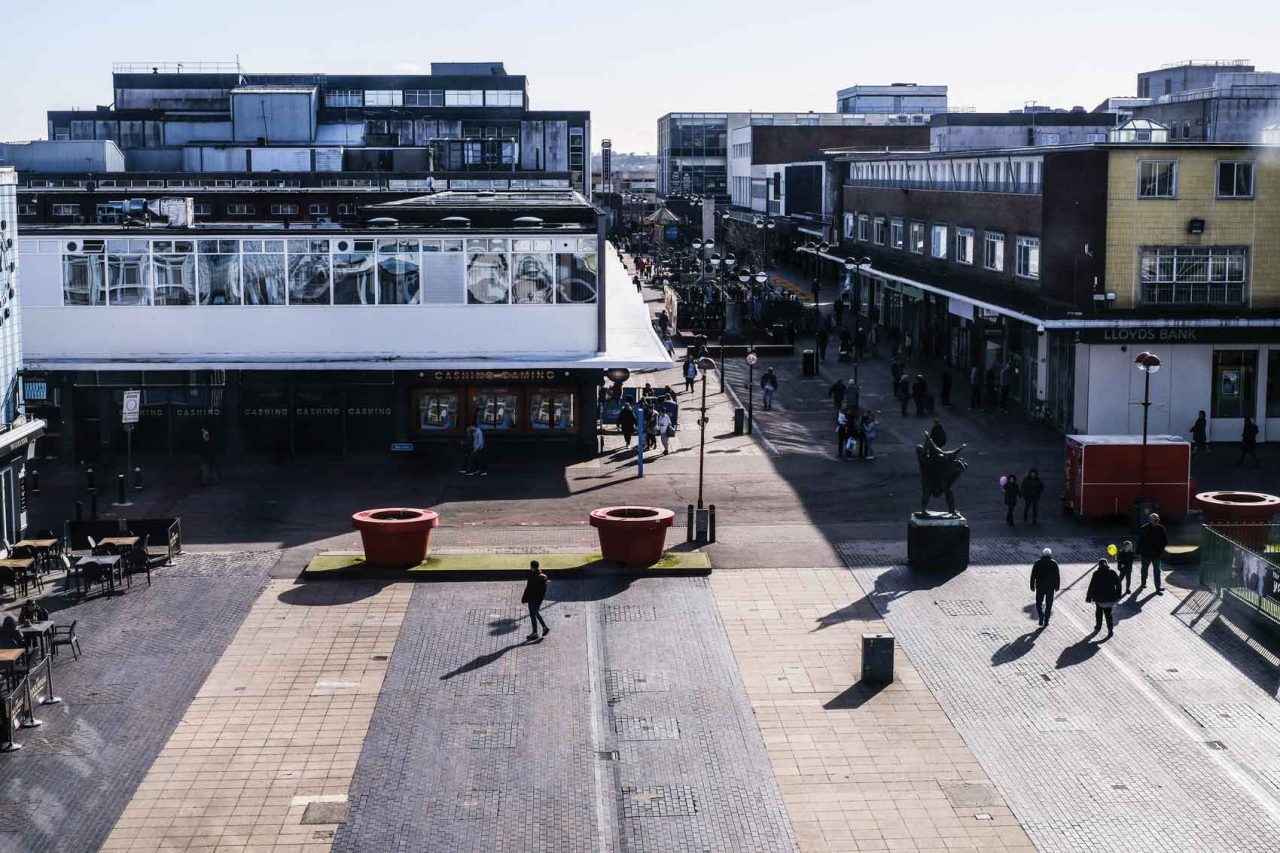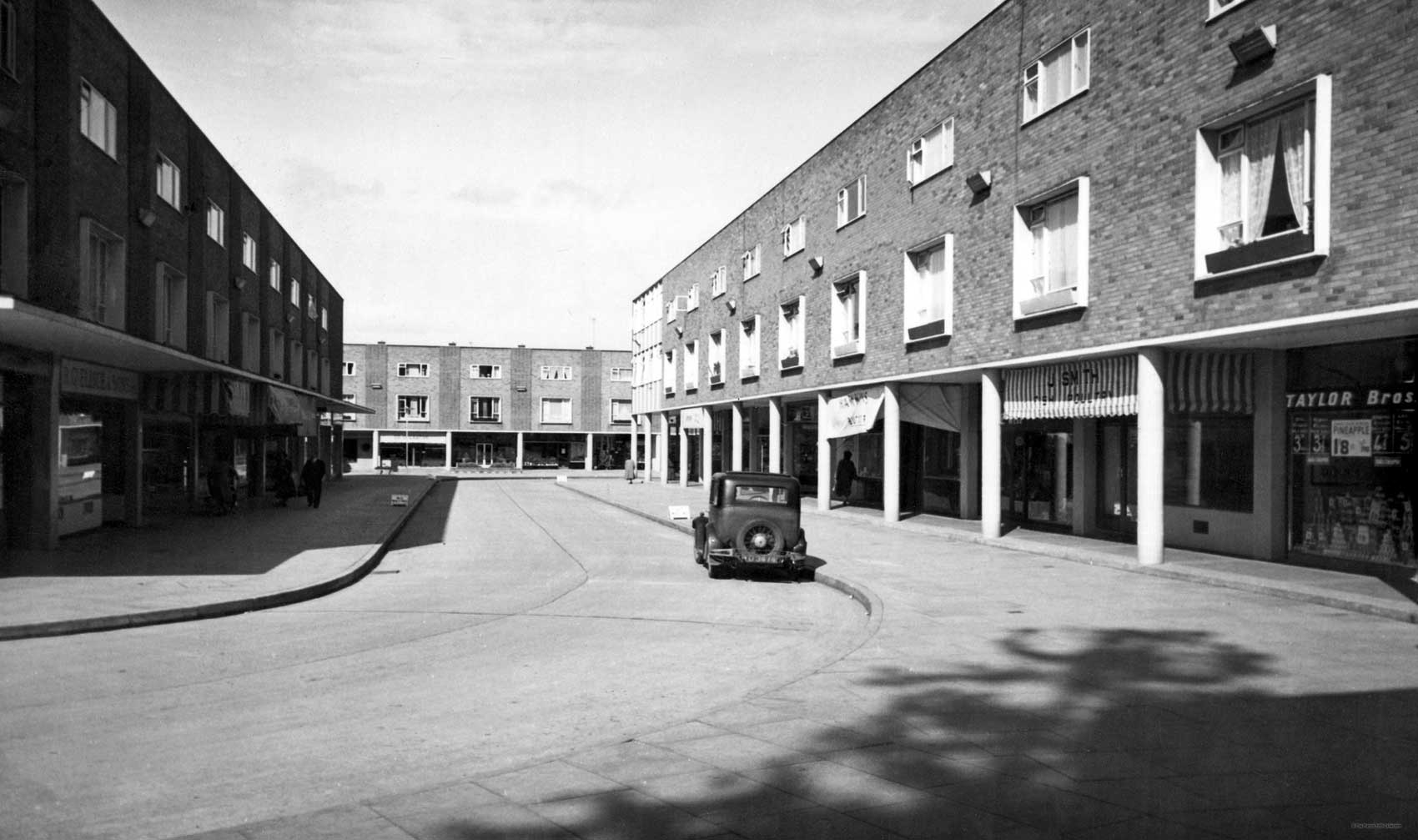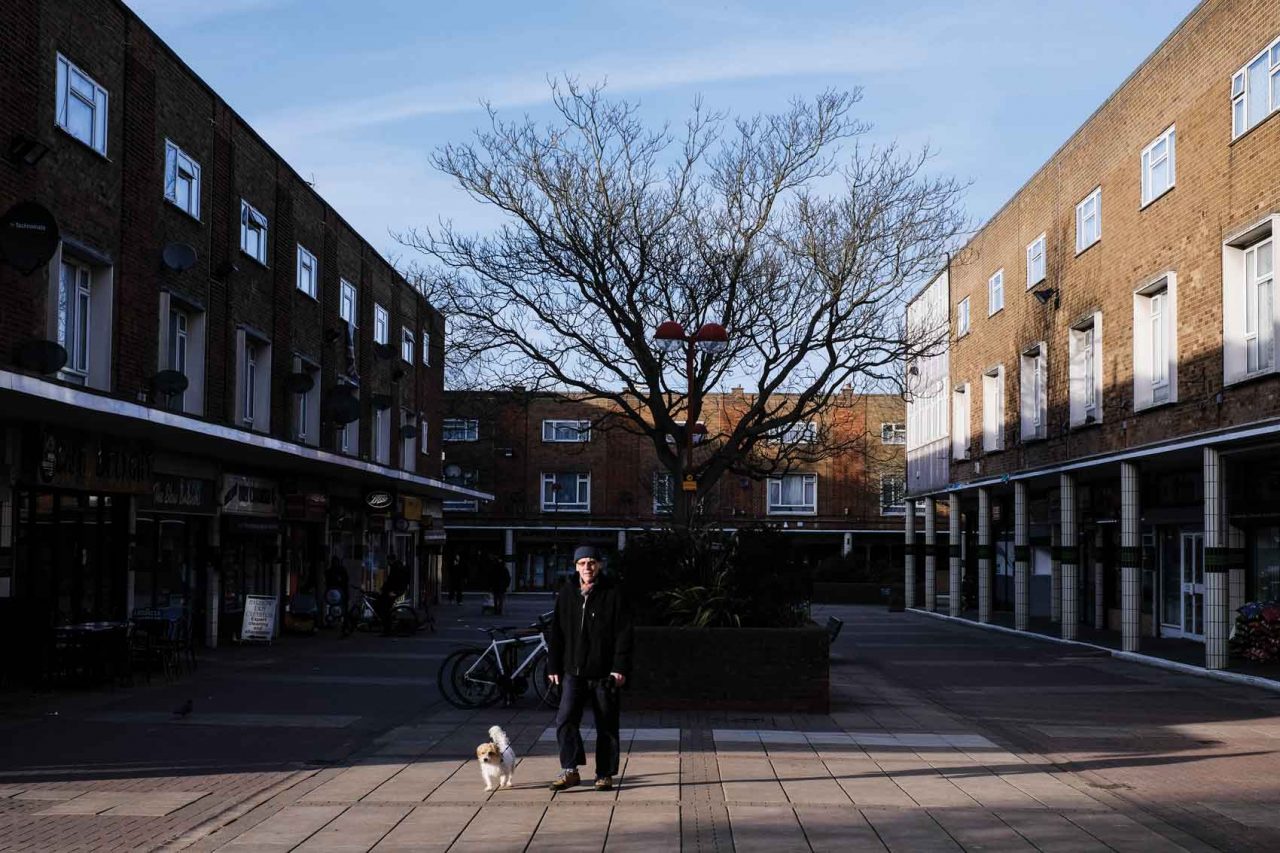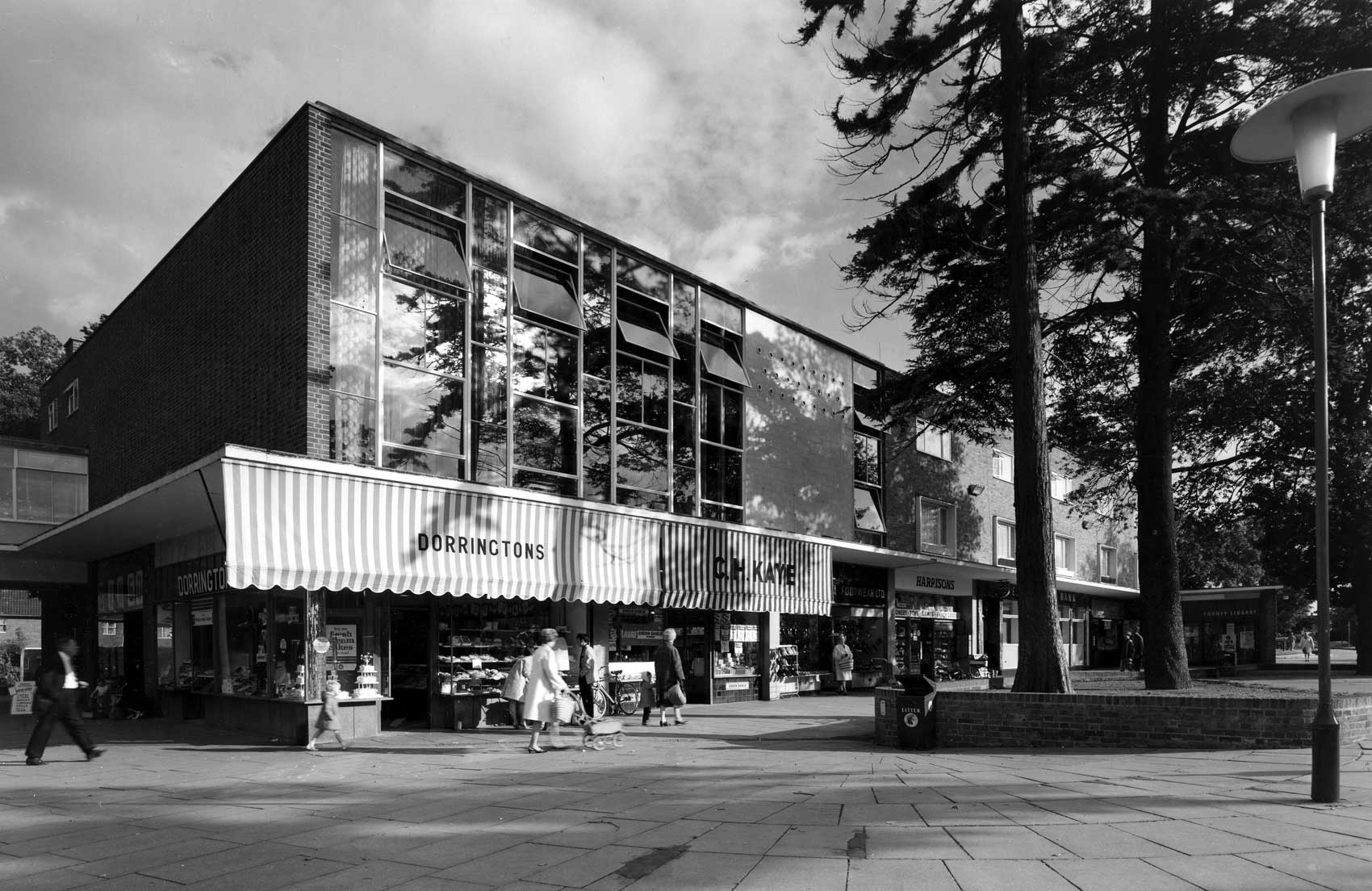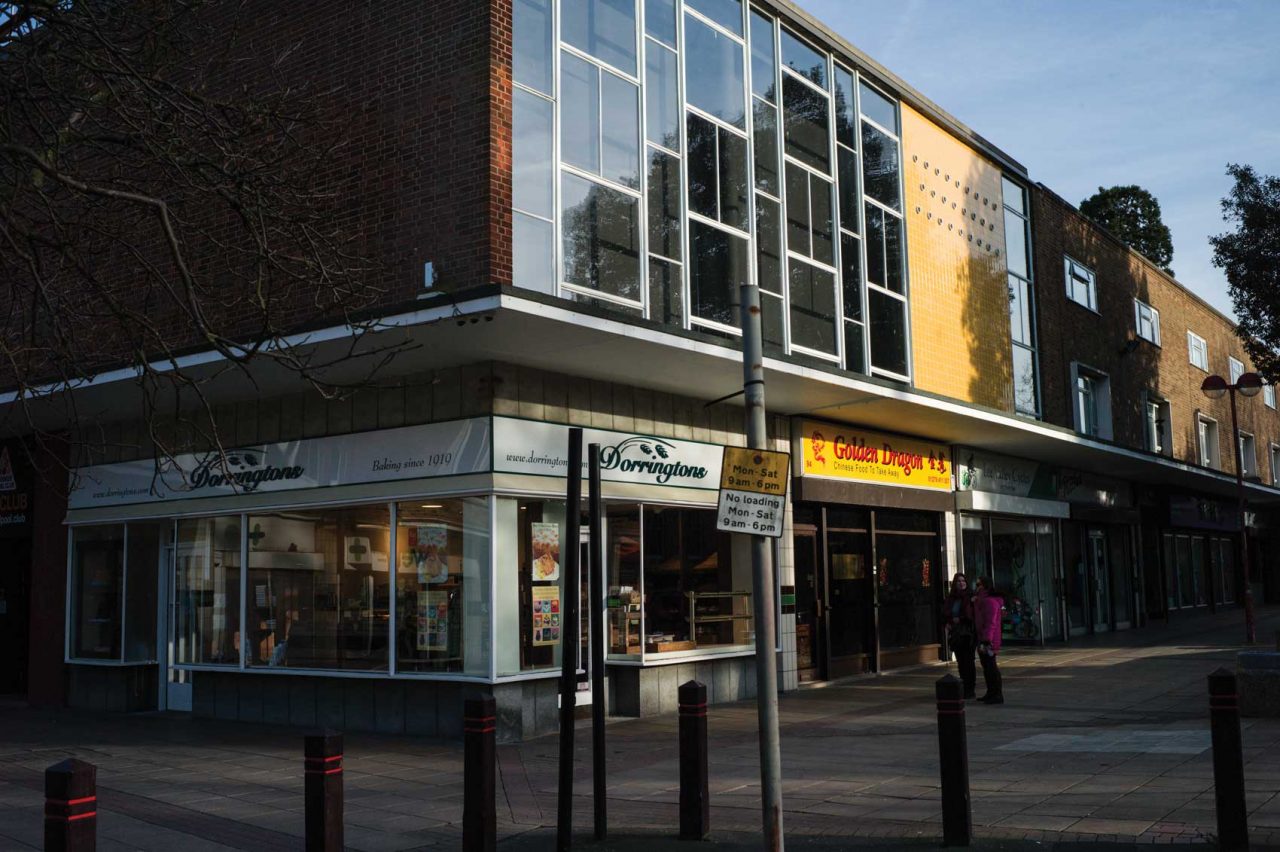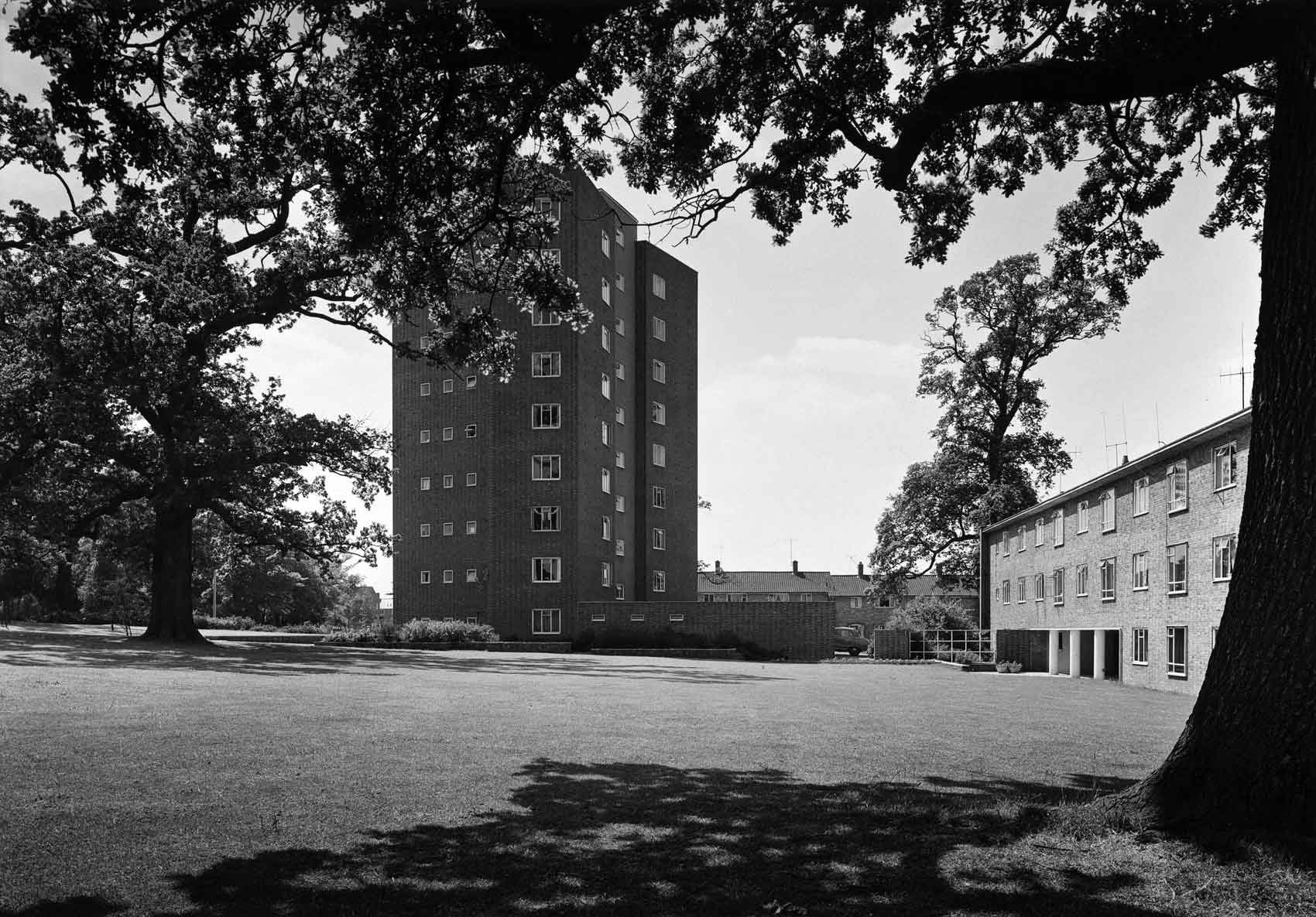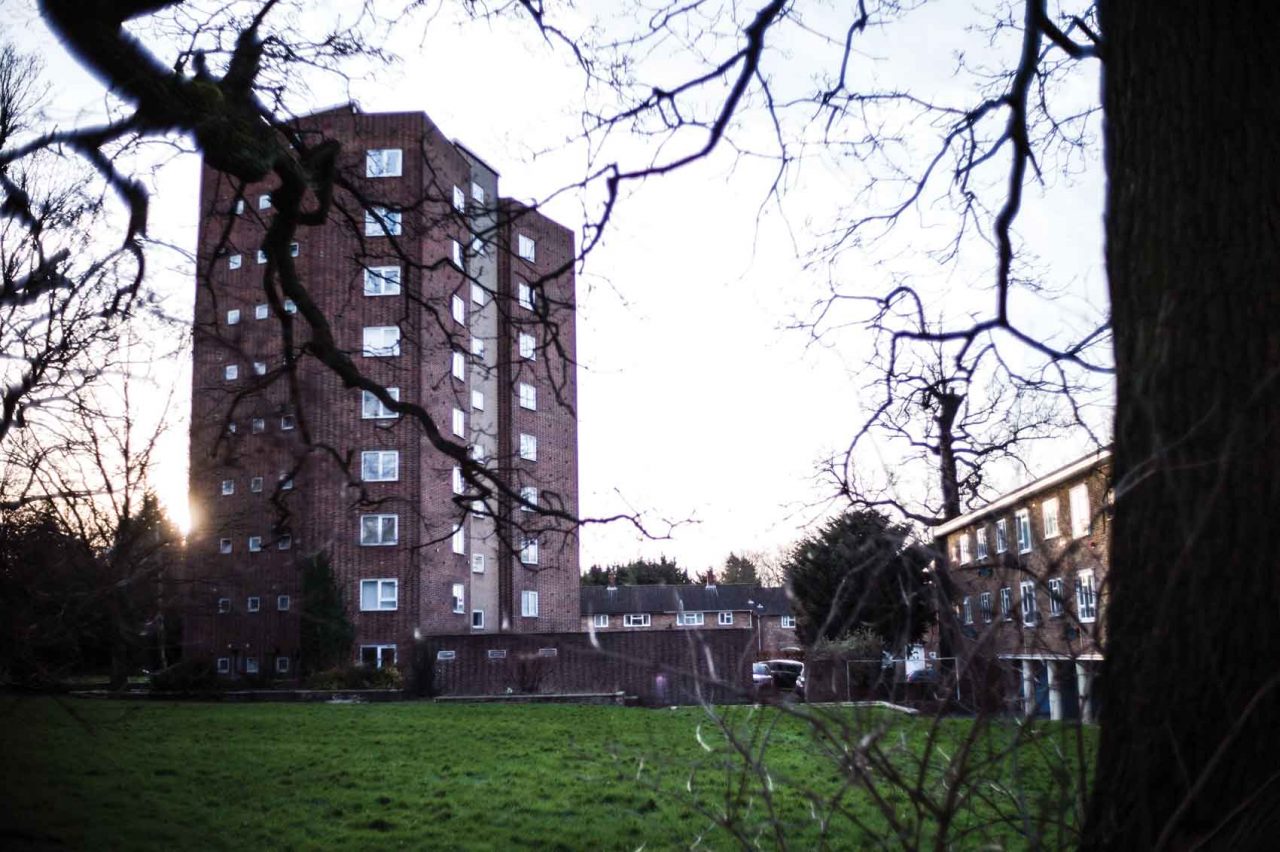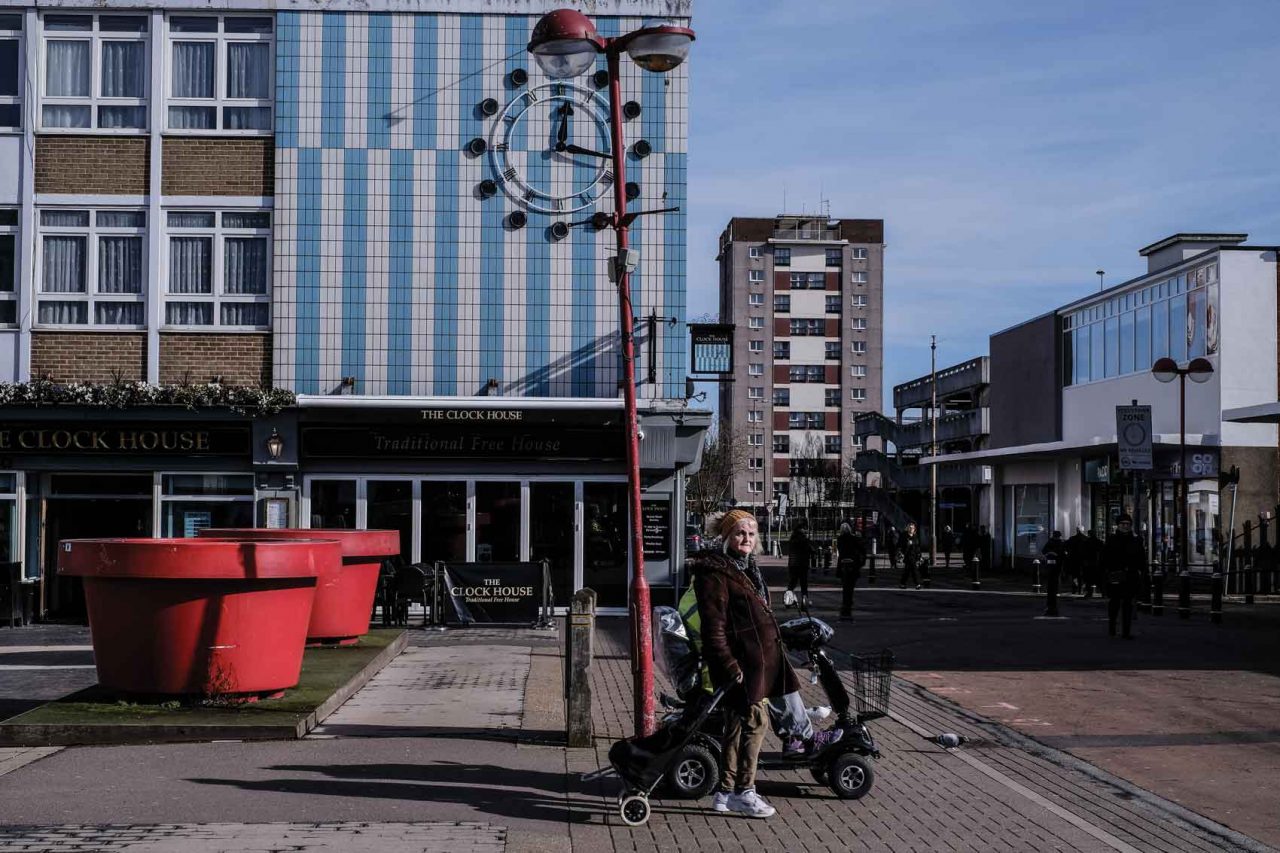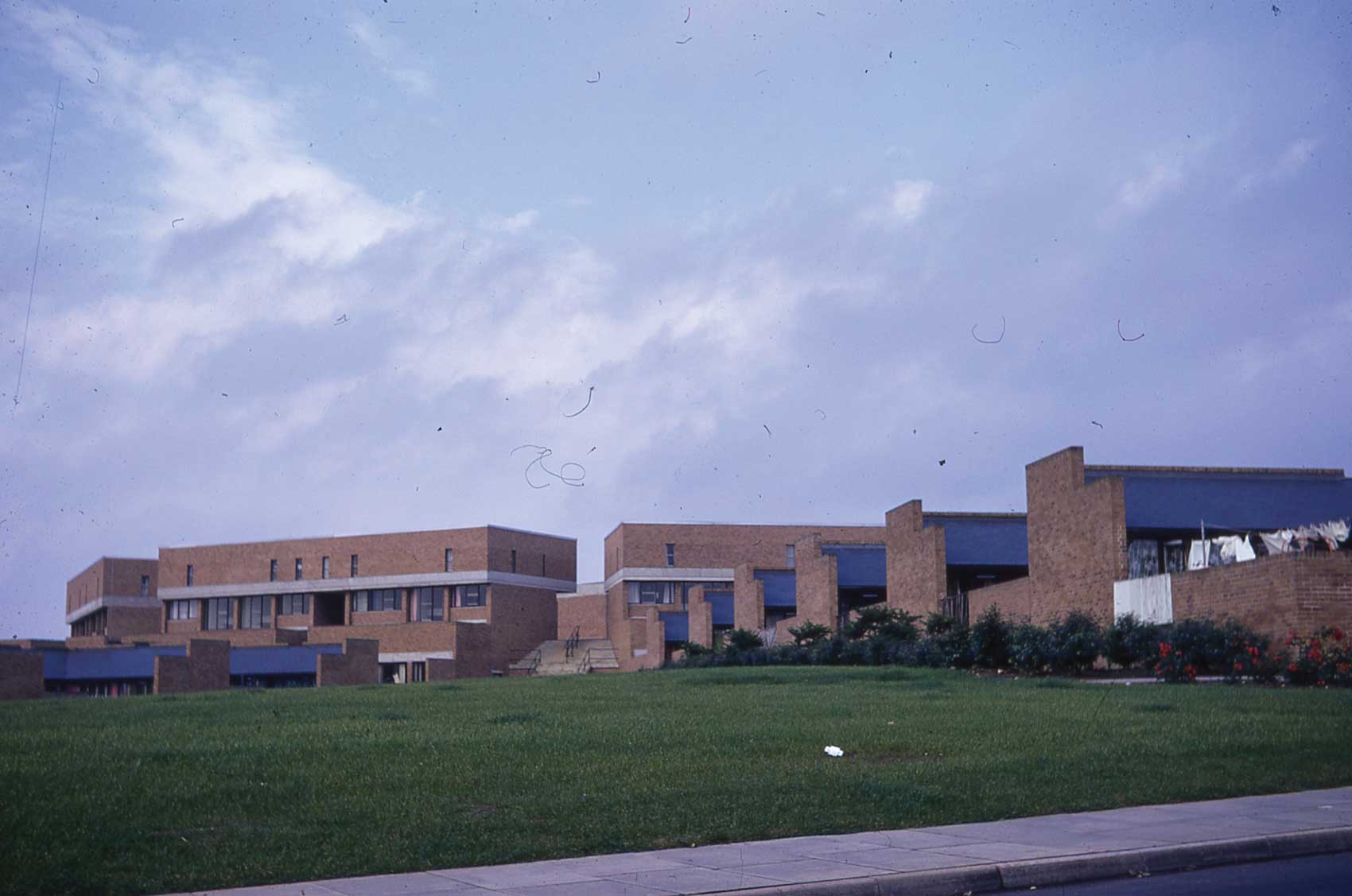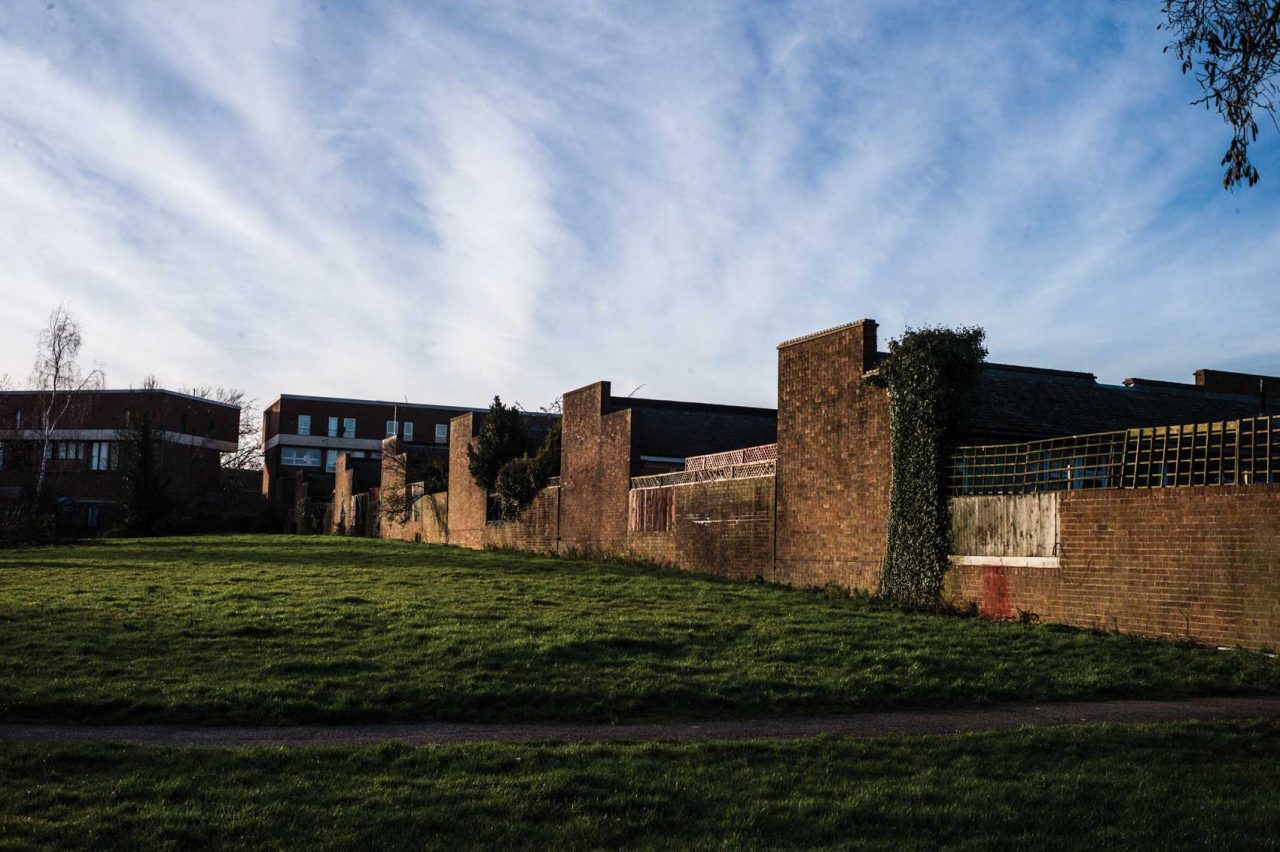New Town Blues
Jason Cowley & Gus Palmer
1
The three men had been drinking for several hours by the time they arrived at The Stow shopping centre in Harlow. It was approaching midnight on a warm bank holiday weekend towards the end of August. Arkadiusz Jozwik and his two companions – the men were Polish and lived and worked locally in the troubled Essex town – were hungry and tired. Jozwik bought a pizza from a takeaway and sat on a wall to eat it. It was then that he and his companions noticed a group of teenagers nearby, some of them on bikes. The boys, and they were boys, aged fifteen and sixteen, approached and there was a confrontation. The men became loud and antagonistic, and, as each group goaded the other, one of the boys slipped out of the pack and sneaked up behind Jozwik, landing to the back of his head what would later be described in court as his ‘Superman punch’.
Jozwik fell – perhaps partly because he was drunk, perhaps partly because he was off balance – and hit his head hard on the pavement, after which the boys panicked and fled. Jozwik was unconscious and blood leaked from his ears as he was taken by ambulance to the town’s Princess Alexandra Hospital, from where he was transferred to Addenbrooke’s in Cambridge.
The next day Essex police described the attack as ‘brutal’ and called it a ‘potential hate crime’ – the suggestion being that Jozwik was assaulted because he was heard speaking Polish. Which alerted the media that what had happened on the night of Saturday 27 August 2016 at The Stow shopping centre was more sinister than a routine late-night altercation that had gone seriously wrong. It was a hate crime, a political crime.
This was the febrile summer of the European referendum when the air was rancid with accusation and counter-accusation and England had never seemed more divided between those who wanted the United Kingdom to continue as a member of the European Union and those who wanted out; between ‘Remainers’ and ‘Leavers’. Like hundreds of thousands of other Poles who had moved to Britain in the years after former Communist states from Eastern Europe joined the EU, Jozwik, who was single, believed life in England offered opportunities that his home country could not. In 2012 he followed his mother, a widow, to Essex because he did not want to be alone in Poland. He lived with her in Harlow, where he found work in a sausage factory.
The day after the attack in The Stow six youths were arrested on suspicion of attempted murder. Then, on 29 August, Arkadiusz Jozwik – Arek to friends and family – died in hospital, having never regained consciousness. He was forty years old and had suffered a brain injury and a fractured skull.
No one has established the exact motivation for the attack – a witness reported that Jozwik racially abused one of the boys, who was black or mixed race – but whatever the motive, the impact of the punch that felled Jozwik was felt around the world: the New York Times incorrectly reported, for instance, that he was ‘repeatedly pummeled and kicked by a group of boys and girls’. And soon it was being called the ‘Brexit Murder’.
Every district in Essex voted Leave in the referendum of 23 June 2016 (the pro-Brexit vote in Harlow, which has high unemployment and areas of deprivation, was 68 per cent compared with the national average of 52 per cent). After Jozwik’s death, the Polish president Andrzej Duda wrote to religious leaders in Britain requesting their assistance in preventing further attacks on Polish nationals and the Polish ambassador to Britain was taken on a tour of Harlow. Around the same time, Polish police officers were sent from Warsaw to patrol the area around The Stow, and the Polish community organised a solidarity march in the town.
‘We Europeans can never accept Polish workers being beaten up, harassed or even murdered in the streets of Essex,’ the President of the European Commission, Jean-Claude Juncker, said in an annual state of the union address on 14 September.
The subtext of Juncker’s intervention was this: the death of Arkadiusz Jozwik was a manifestation of the xenophobic forces unleashed by the Brexit referendum, and Harlow and its people were implicated.
2
Sometimes I dream about Harlow. I was born in what was then called the new town, at home, in a rented maisonette above a parade of shops, with just a midwife to keep watch on my mother as my father waited anxiously with my four-year-old sister in another room. I was educated at various state schools in the town and lived there for the first eighteen years of my life.
In these dreams of Harlow I am who I am now – middle-aged, a husband and father – but I’m invariably back in the house in the quiet cul-de-sac where we lived as a family of five from 1972 to 1983 and where I spent most of my childhood and adolescence before my parents, unsettled by what they considered to be the inexorable decline of the town, moved to Hertfordshire. My father, lucid and calm as he ever was, is alive in these dreams, and I have a sense of having the conversations that his sudden death from a heart attack at the age of fifty-six never allowed us to have.
There was a time, when I first began working in London in my mid-twenties, that I never wanted to be reminded of where I grew up. I could scarcely admit that I was an Essex man, Harlow-born. There was a blockage. A desire to forget or escape. It was as if I was embarrassed about something I couldn’t quite articulate, something bound up with the gradations of the English class system and people’s perceptions of Harlow as a failed town, as ‘Chav Town’.
3
Located at the junction of First Avenue and Howard Way, The Stow opened in the early 1950s as the first of the town’s neighbourhood shopping centres. But, as with so many of Harlow’s public and civic spaces, it has been neglected. I know The Stow well. Our family dentist had his surgery there and, when I was in primary school, after each visit to see him, my mother would treat me to a hot sausage roll or sugar-encrusted jam doughnut from Dorringtons, a family bakery which today still occupies the same space in the two-tier shopping centre, close to where Arkadiusz Jozwik was punched, fell and hit his head.
When I returned to The Stow last April, drawn back by my interest in the ‘Brexit Murder’, I was shocked at how run-down it was. In the pedestrian-only precinct, pound and charity shops – the RSPCA and Salvation Army occupied what were once prime sites – and scrappy fast-food joints proliferated. There was a tattoo and body-piercing shop. A Thai massage parlour was adjacent to an undertaker, a nice juxtaposition of sex and death that would have amused Freud. The Essex Skipper – the original pubs in the town were named after butterflies or moths just as some of the roads were later renamed after left-wing political heroes, Mandela Avenue, Allende Avenue and so on – was shabby and unwelcoming.
It was an unseasonably warm afternoon yet the area seemed desolate. When I returned to my car three young men were sitting on a wall next to it. One of them introduced himself by saying, ‘Good car!’ He spoke heavily accented English. He and his friends turned out to be Romanians and when I asked what life was like for Eastern Europeans in the town they weren’t interested in telling me. So I asked if they worked. They said they did not. How long had they been here? Not long. They had believed they were coming to a new town. But, they said, Harlow wasn’t new: it looked old.
4
My parents arrived in Harlow in 1959 when there were fewer than 6,000 people there (today the population is 86,000 and rising). They were from east London and had been child wartime evacuees, an experience of separation and dislocation my mother found especially upsetting. Their education was interrupted by the war and they both left school at fifteen, my father (who passed up a scholarship to study engineering) to work as an apprentice shirt-cutter and my mother as an assistant in a City of London law firm. They met at a dance at Manor Hall, Chigwell, Essex, and were married in 1958. A few months later they moved to Harlow – my mother’s eldest sister had already settled there – searching for new opportunities in the nascent new town.
The 1946 New Towns Act created eight towns, the purpose of which was to provide decent housing for 340,000 ‘surplus’ or ‘bombed-out’ Londoners – after more than a million houses were destroyed or damaged in the capital during the Second World War. Most of them were already small country towns – Hemel, Stevenage, Hatfield, Welwyn – that would be extended or built around. But Harlow in rural west Essex would be completely new – 60 per cent of the land was compulsorily purchased from one owner, Commander Godfrey Arkwright, the head of an old Essex hunting and landowning family – and the first arrivals there considered themselves pioneers, marking out new territory.
The original village of Harlow (renamed Old Harlow) is mentioned in the Domesday Book. This and other long-established settlements – Potter Street, Parndon, Netteswell, Tye Green, Latton, Churchgate Street – were subsumed by the chief architect-planner Frederick Gibberd into his urban masterplan: built on and around, developed, expanded but not erased or demolished. It was essential for Gibberd that Harlow combined town and country, the urban and rural: he wanted open countryside inside and surrounding the town. He wanted to create ‘a fine contrast between the work of man and the work of God’. The valley of the River Stort formed the northern boundary and, as Gibberd wrote, ‘small hamlets and fine woods [were] interspersed throughout the area’.
My parents were delighted by how rural Harlow was when they arrived: the town was being built around them, self-contained neighbourhood by neighbourhood. For the first time in his life my father suffered from hay fever, which blighted his summers but mysteriously disappeared whenever he returned for any length of time to the city or travelled overseas.
For my parents moving to Harlow was a form of escape: away from the bomb sites and ruined Victorian buildings and streets of east London and, they believed, towards a more optimistic future. From the old to the new. Lord Reith, the first Director General of the BBC, was chairman of the New Towns Committee. For Reith, these towns were ‘essays in civilisation’, and he wanted the people in them to have ‘a happy and gracious way of life’.
The emphasis in Harlow in the early years was always on the new – on new hope, new beginnings and on the vitality of youth. Don’t look back. Never look back. Yet, in the 1960s, there were reports of a phenomenon that became known as ‘new town blues’ – the experience of dislocation and isolation felt by those who were struggling to adapt or who simply mourned the loss of the communities from which they’d been deracinated.
But I knew nowhere else. By the time I was born, Harlow was known as ‘pram town’ because of all the young couples starting families there, and the birth rate was three times higher than the national average. Henry Moore, whose house and studio were in the nearby Hertfordshire hamlet of Perry Green, was invited to create a public sculpture that symbolised the radiant promise of the new town.
Today, Moore’s Harlow Family Group is situated in the expansive entrance area to the town’s civic centre. A man and woman sit side by side, proud and upright. The man’s right arm is wrapped protectively around the woman and she is holding a young child. At its unveiling outside St Mary-at-Latton Church, Mark Hall, in 1956, Sir Kenneth Clark, then chairman of the Arts Council of Great Britain, called Moore’s sculpture, which is 2.5 metres high and weighs 1.5 tonnes, a symbol of a ‘new humanitarian civilisation’ that had emerged out of the devastation of the Second World War.
Harlow Family Group was one of many notable pieces by Barbara Hepworth, Leon Underwood, Ralph Brown, Elisabeth Frink, Gerda Rubinstein, Auguste Rodin, Karel Vogel and others bought and commissioned by the Harlow Arts Trust, which was set up in 1953 and supported by philanthropists and the town corporation. It was paternalistic, this desire to create public art for ordinary working people, but the motivation was pure. ‘So often sculpture is a sort of cultural concession that has little relevance to the real life of a town but, in [this] case, it has become an integral part of Harlow,’ Frederick Gibberd said in 1964. He wanted Harlow to be ‘home to the finest works of art, as in Florence and other splendid cities’.
5
This was an era – hard to believe now – when London was depopulating. Before he was married my father, the only child of a bus driver, lived in a terraced house in Forest Gate, which, as the name suggests, is where the East End thins out and nudges up against Epping Forest. The family home had a small garden and outside lavatory. My father was a talented boy and a gifted cricketer, and he and his mother were frustrated by the life that was being mapped out for him (his father, Frank, who boxed recreationally in the East End pubs, was a quiet, kindly, unambitious man). He did not want to follow his father onto the buses or work in the docks as some of his ancestors had. Nor did he want to emigrate to Australia, like one of his uncles. My father was culturally aspirational. Encouraged by his fiercely protective, austere, red-haired mother (she used to wear a brooch displaying a photograph of her son, whom she called ‘everyone’s favourite’), he dressed smartly, read poetry, listened to jazz music and bought the Observer every Sunday for the books and arts reviews. He liked the theatre and was enchanted by Hollywood. He adored the Marx Brothers and W.C. Fields. The East End of his late adolescence was not today’s vibrant, polyglot, multi-ethnic realm of hipster bars, tech start-ups, barista masterclasses, Balti curry houses, craft-beer festivals, Tinder and Grindr hook-ups, and astronomical property prices: it was parochial, impoverished and diminished. He wanted out.
Yet something happened to my father in middle age, a period when his good career in what he always called the ‘rag trade’ seemed to drift and stall, and he became increasingly nostalgic and introspective. He began to brood on the old world he’d left behind as a young man – the sense of community he’d known, the neighbourliness. Perhaps very belatedly he, too, was suffering from new town blues. He listened repeatedly to music from the 1940s, especially the popular songs of Al Bowlly, the southern African crooner killed by a German parachute bomb that exploded outside his London flat in 1941. ‘Oh, no, he’s going on about the war years again,’ we used to tease. He showed me some of the poems he wrote, always set in the East End during the early 1940s or just at the end of the war. One was called ‘Don’t Cheer Us Girls We’re British’, an ironic slogan he’d seen written on a jeep carrying troops along a road close to where he lived.
My father was a war child. The first day of the Blitz, 7 September 1940 – ‘Black Saturday’ – a day of clear blue skies, coincided with his sixth birthday. He was so traumatised by the experience of the assault on the docklands and nearby neighbourhoods – he recalled burning buildings and an apocalyptic red glow in the sky – that he lost his voice. His father, the bus driver, refused to leave the house during subsequent intense bombing raids. My father and his mother would hurry to an air-raid shelter whenever they heard the sirens warning of an imminent Luftwaffe attack; but Frank would try his luck above ground, even as nearby houses and buildings were being destroyed.
Towards the end of his life, my father spoke often about how the depredations but also the intensity of a child’s experience of the home front, and indeed of the urgency of wartime more generally, united the people around him: there was a commonality of purpose, a conviction that if they could endure, if they could get through the worst, the future would be better. Which is why Harlow seemed so attractive to him.
War and the wartime command economy (Labour leader Clement Attlee officially became Churchill’s deputy prime minister in the coalition government in February 1942, though he was the effective deputy as Lord Privy Seal from May 1940) created the conditions for socialism and a new settlement in Britain. Without the war, the Labour Party would not have swept to power in 1945. ‘The revolution in England has already begun,’ H.G. Wells said on 22 May 1940 when Attlee introduced the Emergency Powers Defence Bill in the House of Commons and sandbags went up across Westminster. For George Orwell, who admired the patriotism of the working class, the ‘English revolution’ gathered momentum with the epic retreat from Dunkirk. ‘Like all else in England, it happens in a sleepy, unwilling way, but it is happening,’ Orwell wrote. ‘The war has speeded it up, but it has also increased, and desperately, the necessity for speed.’
6
To grow up in Harlow was to be on the front line of the English revolution. More than this, you were a cog in a grand social and political experiment. I understand this now but back then I was just living. My friends and I were children of the welfare state. The social transformations and central planning of the immediate post-war period, as the new Labour government set about building what Attlee called a ‘New Jerusalem’, had created thrilling possibilities for us. The National Health Service was established; the National Insurance Act abolished the hated means test for welfare provision; essential industries such as the railways and mining were nationalised; the Town and Country Planning Act was passed, opening the way for mass housebuilding and the redevelopment of huge tracts of land; Britain’s independent nuclear deterrent was commissioned; the gap between rich and poor narrowed.
This was a very British revolution, and a pragmatic experiment with socialism: the state was powerful but not all-powerful. It was not a vindictive exercise in destruction but one of creation: about a new social contract between the state and the individual to enhance the common good. The monarchy, the landowning families and the ancient public schools (Attlee was a proud Haileyburian) were untouched. Individual freedom and the great British institutions
were cherished. The cost of war had impoverished the nation, left it with a ruinous trade deficit and ended Britain’s imperial hegemony. But these were new times. Progressive change was not only possible, it was believed to be necessary. As Attlee recognised, the British people ‘wanted a new start’. They had suffered and they had endured. Now, he said, they were ‘looking towards the future’.
Our lives as children were socially engineered and it seemed everything we needed was provided by the state: housing, education, health care, libraries, recreational and sports facilities. There were so-called playschemes (quasi-summer camps) where we gathered to play or take part in organised games during the holidays. The town had a network of cycle tracks, among the most extensive in the country, which connected all neighbourhoods to the high-density town centre, the High, which was built on the highest settlement, and to the two main industrial areas, Temple Fields and the Pinnacles. In 1961, a multi-purpose sports centre, the first of its kind in Britain, was opened. It was funded by local people through voluntary contributions via their rates (my aunt was proud to be one of the enthusiastic contributors).
One friend has since described the experience of growing up in the town in the sixties and seventies as ‘East Germany without the Stasi’. Those of us born and raised there were referred to as ‘citizens of the future’. Rural spaces (the so-called green wedges of the master plan, one of which became the magnificent town park, with its skating rink, bandstand, nine-hole pitch and putt golf course and animal centre) and planned recreation areas for children were meant to encourage us to lead healthy, active lives and to play in safety. In the words of the 1958 public information film about Harlow, ‘If these boys and girls don’t grow up to face successfully the problems of their day, it will not be the fault of the architects and planners who helped to give them a start.’
7
What I didn’t realise then – of course, I saw but I did not see – was that Harlow was, in effect, a monoculture. The original aspiration was to create a ‘classless’ society but, growing up there, it felt mostly as if you were living in a one-class town – that was, working class. There was a small middle-class intelligentsia, who participated in Labour Party politics, in the local drama, literary and film societies and who gathered around the Playhouse, which had opened in 1971 for live theatre, films and exhibitions. My father, whose interests were cultural rather than political, was part of this scene.
But, on the whole, nearly everyone I met was white working class. Out of the 250 or so children in my year at secondary school – a huge non-selective, mixed-ability comprehensive, opened in 1959 and enlarged in 1972, one of eight in the town – I remember one boy whose family was Hong Kong Chinese (he ended up running an oriental restaurant in Germany) and two girls whose parents were Indian. Everyone else was white. My classmates’ parents had, for the most part, come from the East End or the poorer parts of north London, such as Edmonton or Walthamstow, and many worked in the town’s factories and manufacturing plants – the International Telephone and Telegraph Corporation (which by the end of the 1970s employed 8,000 people), the Cossor Group, Revertex Chemicals, Johnson Matthey Metals, Schreiber, Pitney Bowes, United Glass. These companies had their own social clubs and sports teams, even boys’ football teams, which I played against in the recreational league for Newtown Spartak, a name more redolent of the Soviet Union.
Before the introduction of Margaret Thatcher’s Right to Buy scheme, which enabled tenants to buy their council house at a large discount, most of the houses in the town were owned by the town corporation. (Even today, a third of the housing stock is council-owned.) Yet from 1972 we owned our house, and lived on one of the few private developments, or executive estates as they were known. This set us apart somewhat. This and the fact that my father did not work locally but commuted to London, driving there in his Alfa Romeo rather than take the train. Because he worked in the rag trade – designing, range-building, merchandising – he wore fashionable, often flamboyant clothes, and he travelled incessantly – to India, Hong Kong, the United States, South Korea, France, Switzerland, Italy, Germany.
My father had studied at night school and was unusually articulate – ‘posh’ my friends called him. But he wasn’t posh: he simply did not speak with the local accent, which today we call ‘Estuary English’, the dialect associated with people living in and around London, especially close to the River Thames and its estuary. My mother called it ‘sub-cockney’, distinguishing it from the accent of her father, a hard-working and thrifty carpenter who was born, as she liked to remind us, ‘within the sound of the Bow Bells’ (the bells of St Mary-le-Bow church, Cheapside), a badge of honour worn by true cockneys.
Daily life at my secondary school was a process of negotiation and adaptation: I could not speak there as freely and candidly as I did at home. At home, if I spoke as I did at school, my mother would chasten me for my glottal stops and h-dropping. At school, if I spoke as I did at home, I would have been mocked as ‘posh’, a grave insult. If some of my classmates visited our book-cluttered house, I used to hide my father’s magazines – the New Statesman, the Listener, i-D, City Limits – and newspapers because he did not read the Sun or the Mirror, like their fathers. I was frustrated that he did not conform to Harlow norms, even though the conformity I wished upon him would have been a betrayal of all that he wanted, who he was, his great expectations. Sometimes when he was out I’d open his wardrobe and be overwhelmed by the warm, seductive smell of his clothes. I was especially fascinated by his two-colour shoes and exotic shirts and bright ties. Why did he dress so unlike my classmates’ fathers, some of whom wore donkey jackets and DM boots to work?
There was little sense, in the five years I spent at comprehensive school (I left at the age of sixteen to do A levels at Harlow College), that we were being prepared for university. I once mentioned, on a whim, that I’d like to study law without knowing what that would have entailed. I was told by a teacher that law was for ‘private-school boys’, as if that was the end of the matter. It was useful to get that learnt. Most weeks it was a case of getting through and getting by. Woodwork, metalwork, motor vehicle studies and home economics were among the subjects taught. I was hopeless at all of them.
8
My father liked to remind us that we owed our opportunities as citizens of the future to the idealism of the war generation. But progress isn’t inevitable. There’s no guarantee that things will keep getting better, that the arc of history bends towards enlightenment. History isn’t linear but, I think, contingent and discontinuous, even cyclical. Ron Bill, an associate of my mother who worked for the Harlow Development Corporation, once told me that he and his colleagues had reached for Utopia. ‘The town attracted progressives, community-minded people,’ he said. ‘Frederick Gibberd was an example of such a person. That first wave of people who came to the town in the fifties and sixties – many of them socialists and communists – they wanted to build something. The trouble is, there wasn’t a second wave equal to the first.’
Utopia means nowhere or no place. Harlow is often called a nowhere zone or left-behind town, which you pass through on the way to somewhere else. News from Nowhere was the title of William Morris’s futuristic novel about a socialist Utopia. There was only bad news from Harlow following Arkadiusz Jozwik’s death in the summer of 2016. The suggestion in much of the initial reporting of the so-called Brexit Murder was that in reaching for Utopia the town’s pioneers and planners had ended up creating the opposite of what was intended: a dystopia.
9
On 31 July 2017, I went to Chelmsford Crown Court to hear Judge Patricia Lynch deliver her verdict on the Jozwik case. Before proceedings began I sat in a tatty reception area outside the courtroom directly opposite to where the teenage defendant’s family waited. Almost a year had passed since Arkadiusz Jozwik had died, and the defendant, who could not be named for legal reasons, was now sixteen. His family – including his mother and grandmother – were suspicious of my interest and did not want to be interviewed when I approached them. The youth just looked at me blankly. I gave the family my contact details and asked if they would call me, but they never did. I followed up with several phone calls to their solicitor in Old Harlow. But the family had chosen silence.
That afternoon I spoke to the defendant’s uncle as he smoked a cigarette in the sunshine outside the court building. He was in
his twenties, had a sleeve of tattoos on one arm and expressed bewilderment about what had happened at The Stow. Inside, the youth wore a white shirt several sizes too big, a loosely knotted thick dark tie and plain black trousers. He was short, had a wavy fringe and a wispy moustache. He seemed lost and, at times, even bored as he sat in the box, watched anxiously by his mother. She had a heavy cold, though it was high summer, and I noticed her nails were bitten down to stubs.
The mother looked sadly unsurprised as her son was convicted by a jury of the manslaughter of Arkadiusz Jozwik. Jenny Hopkins, Chief Crown Prosecutor, said she was satisfied that there had been no intent by the youth to kill Jozwik. It was not a racist attack or hate crime, as had been widely reported. ‘We decided therefore that the correct charge was one of manslaughter,’ she said. ‘Manslaughter is the unlawful killing of another person with an intention to do some harm or the foresight that some physical harm may result. The court was told the youth put ‘the full force of his body into the punch’ and he must have been aware when ‘he punched Mr Jozwik in this way that some harm was likely to be caused’.
The Chief Prosecutor continued, ‘This was a senseless assault and with that one punch, which was over in seconds, the youth was responsible for Mr Jozwik losing his life and causing unimaginable anguish to Mr Jozwik’s family and friends.’
The judge announced that sentencing would take place on Friday 8 September. By this time, the media were losing interest in the case. This was no ‘Brexit Murder’.
10
One rainy morning just before Christmas, I went to see the head of Harlow Council, an animated Labour councillor called Jon Clempner. He was angry at how, in his view, Essex police had mishandled the case, allowing the fires of rumour and allegation to rage out of control. (Clempner resigned as leader in January 2018.) ‘The police knew within twenty-four hours that it was not a racist attack or a murder. But they did not close down the speculation until it was too late,’ he told me as we drank tea. His office was in the civic centre overlooking the Water Gardens, which were originally designed by Frederick Gibberd as a series of parallel terraces and have since been reconfigured and truncated. From the wide, high window, I looked out across the Water Gardens, over a car park, cycle track, some woodland and nearby fields. Beyond these fields I could see in the far distance the housing estate where my grandfather came to live after he retired, so that he could be closer to his son, who would die before him.
Something was missing, however: the high-rise modernist town hall, once considered to be Harlow’s most important building in its most important space, the civic square. Designed by Gibberd and opened by Clement Attlee in 1960, it was demolished in the mid-2000s as part of the first phase of the redevelopment of the semi-derelict town centre. A huge Asda supermarket now dominated the space where the town hall once stood in imposing isolation, like a monumental watchtower.
One afternoon, many years ago, while on a school trip to the High when I still lived in the town, some friends and I detached ourselves from the group and slipped illicitly into the town hall. Local rumour had it that there was a nuclear bunker in the basement and we wanted to find it. But, instead, we took the lift up to the observation tower where we found ourselves quite alone. We looked out across the surrounding landscape. There, laid out before us, were the cool, clean geometric patterns of the town in which we lived, with its centrally planned network of roads and avenues, its schools and factories and council estates and green wedges. We remained in the observation tower until it was almost dark, watching in wonder as the lights in the distant houses below were switched on, one by one, their amber shimmer illuminating the grid-like structures on which the town was built. And then the houses seemed to melt away and I tried to imagine what it must have been like here before the new town came, the rural tranquillity and the emptiness, the very absence of people.
11
It’s taken me a long time to recalibrate the experience of growing up in Harlow. Most of the children I knew, some clever and gifted, never considered for a moment that university was a possibility for them and they contentedly left full-time education as soon as they could. Who knows what became of them.
Like most of my peers, I very nearly didn’t make it to university. I rebelled at Harlow College, switching subjects and missing or repeatedly turning up late for classes, before eventually dropping out. In my late teens, after signing on the dole, restlessly bored, in love with someone who was in love with someone else and in need of money, I found a job as a clerk at the Electricity Council, at Millbank in London. I couldn’t afford the train fare so commuted on a coach from my parents’ house, a journey that took two or three hours on some days because of traffic congestion. And then you had to do it again in the evening. But it was during those coach journeys that I began reading seriously for the first time.
After six months working as a clerk in a labyrinthine public-sector bureaucracy, I decided to cram-study A levels. In other words, I gave myself nine months to change my life. A benevolent senior manager at the Electricity Council allowed me ‘day release’ from the office every Friday to return to Harlow College, where I’d been such a poor student and mocked as a ‘dilettante’ by my tutor. This time, I would study politics, in which I had an intensifying interest. I also enrolled to study for an A level in English literature at a Thursday-evening night class at a comprehensive school in Old Harlow. There, I came under the influence of a man called David Huband, who was wise, soft-voiced and bearded, and the kind of inspirational teacher I’d never encountered before, the one teacher we all need to meet. As one of the local intelligentsia he knew people who knew my father and he took an interest in me. He must have sensed that I was in trouble, existentially alarmed and adrift.
The three hours I spent in his company every Thursday evening, from seven to ten, changed how I thought about the world, and those nine months, from September 1985 to May 1986, working at the council, reading while on the coach and studying at weekends at Harlow library or at home, were transformative. I told virtually no one I was studying because I feared failure and the continuing humiliation of life as a clerk. In late May and June, as the football World Cup played out in Mexico, I took my A levels. At the end of the summer I left for university: in one bound, I believed I was finally free from Harlow and all its associations, never looking back. Forward, forward, forward.
12
On 8 September 2017, a sixteen-year-old Harlow resident was sentenced to three and a half years in a young offender institution for the manslaughter of Arkadiusz Jozwik. Passing sentence, Judge Patricia Lynch said that Jozwik had been a ‘perfectly decent, well-loved man in his prime’. He would be mourned by his family. As the judge spoke you could hear people in the courtroom weeping. ‘A year has passed since Arek died but every day I miss him as much,’ Ewa Jozwik, his mother, said in a statement read out in court. ‘There are moments I don’t want to live any more.’ She was present for the sentencing and wept continuously.
For the defence, Patrick Upward said that the youth, who once again wore a white shirt and black tie as he sat in the defendant box, felt ‘remorse’ at what had happened – he nodded when he heard this – and made reference to his troubled family background and the serious illness of his father. The court heard that he had two previous convictions, one for threatening behaviour, yet was ‘not far removed from being a youngster of good character despite those difficulties’. But, in her final address, Judge Lynch said that the defendant had fled the shopping centre after the attack and done ‘nothing for the welfare of the deceased’. When the sentence was announced, the youth – who resembled more than ever a lost boy – waved meekly at his family and stumbled slightly as he left the box. His mother, crying now, shouted, ‘I love you.’ She and other family members hurried out of the courtroom and could be heard weeping in the corridor.
It was raining as Ewa Jozwik left the court building in Chelmsford. Asked by waiting reporters outside, several from Polish television stations, if she believed the sentence was fair, she shook her head in a forlorn gesture of frustration or defeat. ‘All the time I can see in my mind the moment I saw him lying motionless in the hospital bed connected to the life-support machine,’ she said of her dead son. ‘I wanted him to wake up badly.’
Arkadiusz Jozwik is buried in Harlow and the inscription on his gravestone is you were a dream, now you are a memory.
Reflecting on the case, I felt only sorrow – for Jozwik, of course, and those who loved him, but also for the incarcerated youth, ‘not far removed from being a youngster of good character’, and his family. I felt sorrow, too, for Harlow, which in the immediate aftermath of Jozwik’s death, as the town was flooded with reporters from around the world and Polish police patrolled The Stow shopping centre, had come to symbolise all that was perceived to be rotten in England. The vote for Brexit had revealed a fractious and fractured country. Harlow, a once-utopian settlement, was one of the ‘left behind’ towns, with a disenchanted and xenophobic population. Though only a short thirty-minute train ride from the stupendous wealth and diversity of one of the world’s most globalised cities, it had been locked out from prosperity, as if part of another country altogether.
13
One recent afternoon I went on a bike ride around Harlow: the cycle tracks, though more rutted and uneven than before, remain among the glories of the town. I enjoyed being back on a brisk cold day. I know few people there nowadays and visit only very occasionally to see my mother’s eldest sister who is ninety. She has lived in the same modest terraced house for more than five decades, a short walk from the first school I attended as an infant. Yet, in recent years, rather than go straight home after visiting my aunt, I’ve found myself driving around estates I once knew so well, along roads still familiar, past fields where I used to play. Once I pulled up outside the church where I was an altar boy – until playing Sunday-morning football liberated me from the unloved ritual.
I’m not sure what I’m looking for. I once even retraced my morning walk to secondary school, which involved making my way along a narrow alleyway that ran between the gardens of two houses at the end of which teenage smokers would wait intimidatingly. For amusement or out of boredom they kicked holes in the wooden garden fences and, though they were only one hundred metres or so from the school gates, there were never any teachers around to caution them.
The school closed long ago and is now a business centre, yet, in my imagination, especially since our young son started full-time education four years ago, I can’t stop wandering its corridors. On that return visit, as I stood in a car park that had once been our playground, it was as if I could hear the thrilling sound of children’s voices all around and, in my chest, I felt the burning sensation of long-dormant frustrations and regrets.
14
Harlow celebrated its seventieth anniversary in 2017 and there are palpable signs of renewal: 10,000 new homes will be built as part of the Gilston Park development as the town expands north of the main train station; Public Health England is building a new science and research campus there which will create thousands of new jobs; an Enterprise Zone is attracting inward investment; the town centre, so boisterous and vibrant, especially on market days, when I was a boy, is set to be redeveloped and will, at last, become fully residential. Harlow is fortuitously situated between London and Cambridge on the M11 corridor. It need not be left behind.
In common with most of the other post-war new towns, Harlow declined, especially after the remit of the Development Corporation ended, because of a lack of capital investment and of the failure to renew its housing estates and its infrastructure. Many of the large factories and manufacturing plants also closed or relocated, creating unemployment. As early as 1953, the New Statesman warned that, without greater investment, the new towns would bear ‘for the rest of their life the marks of early malnutrition’. It was a prescient observation.
From the beginning, there were flaws in Frederick Gibberd’s master plan, most significantly making the town centre non-residential as well as segregating the residential and industrial areas. Town centres thrive when people live and work in them. Some of the council estates, such as Bishopsfield, which was close to where we lived and was known locally as ‘the Kasbah’ because of its oppressively narrow alleyways, were ideological experiments in modernist design. Less consideration was given to what it was like to live on these brutalist estates, some of which had to be pulled down in later decades because they were built using inadequate materials and failed to meet the government’s ‘decent homes’ standard. Plus, Gibberd did not plan for the preponderance of motor cars, and today many of the small front gardens in the estates have been concreted over to provide space for them.
As an energetic, sports-obsessed boy, so much of what I relished back then – the swimming pool, the sports centre, the playschemes, the pitch and putt in the park, the town hall – was allowed to decay and was then demolished. But perhaps the truth is that the second generation who were born in Harlow and had no experience of wartime or life elsewhere did not believe in the town as their parents had. For them, it just happened to be where they lived, nothing more or less. The children of the idealistic middle class did not, on the whole, stay there: as soon as they could they moved on and out. They moved to London, an inversion of their parents’ original journey. There was no second wave of progressives committed to the new town dream. If I once thought I disliked the town or was embarrassed by it, I no longer feel that way. I’m grateful the wartime generation reached for Utopia. My father and mother did the right thing by leaving London when they did. It’s worth remembering that Utopia also means good place. Somewhere along the way Harlow ceased to be special. It ceased to be new. But it is not nowhere or no place. It is where I was born and grew up. It is my home town.
Cover photograph © Gus Palmer


